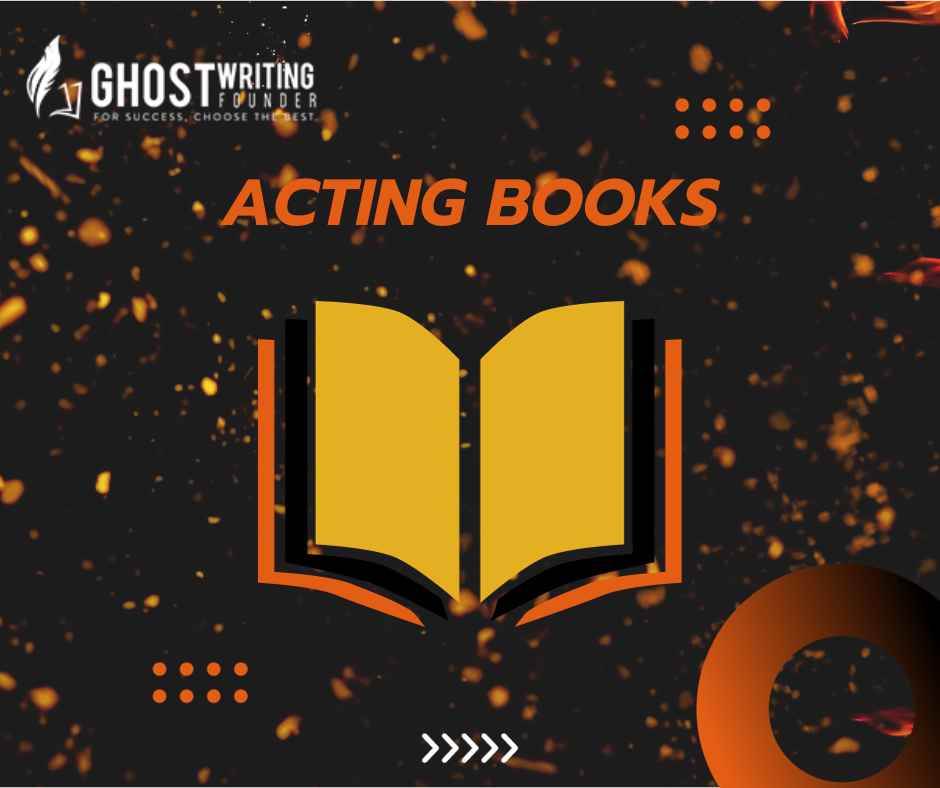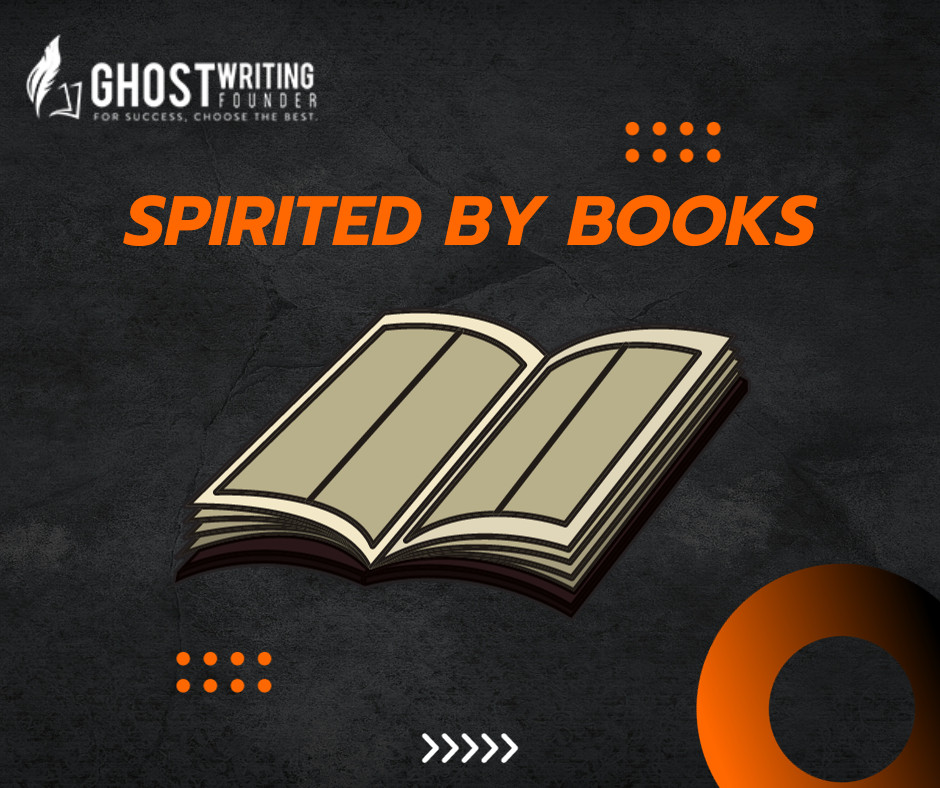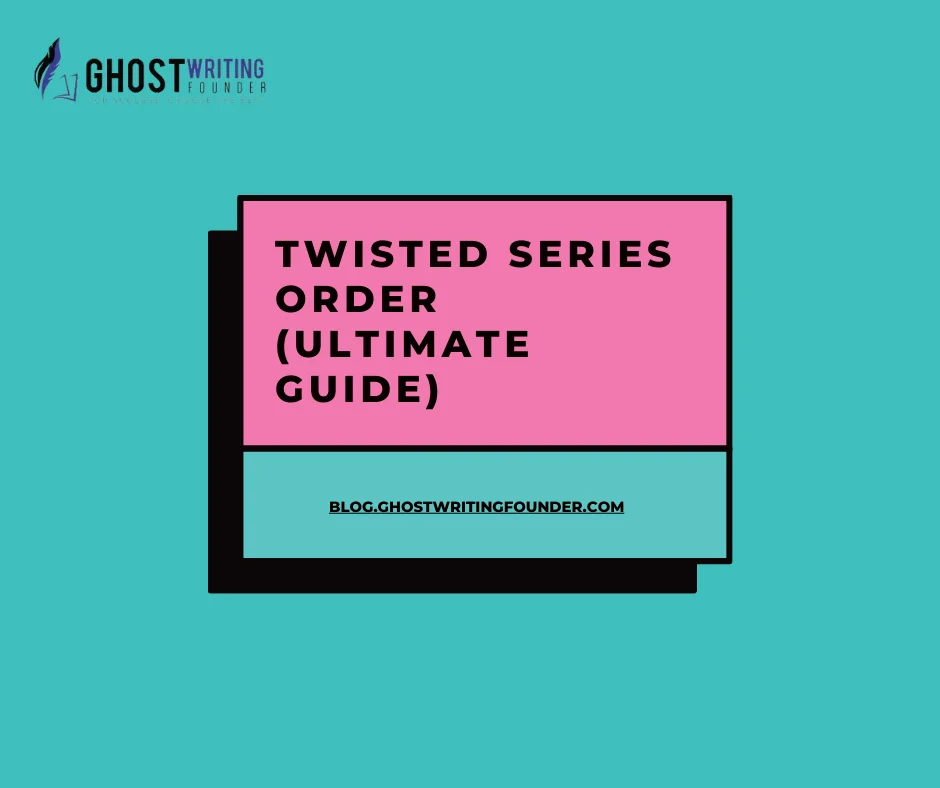
Book Writing
Training is never “done” for artists. Like any other talent, acting requires extensive study, practice, and a commitment to constant improvement.
To improve your acting insights, you can take lessons, get coaching, work on set or on stage, and read books on acting topics.
Concerning acting books, there are so many, and it’s difficult to tell which ones are good, average, or bad.
Whatever your medium or degree of expertise as an actor, you will find many suitable books here. From practical tips to timeless techniques, these books are here to make the art of acting not only accessible but also a whole lot of fun.
Essential Books to Sharpen Your Acting Skills:
As an art form, acting is a dynamic interplay of technique and intuition, a delicate balance that demands continuous exploration and refinement.
Different industry professionals from Ghostwriting Founder were consulted regarding the ideal book for actors. They suggest many books and how-to guides for improving your acting skills.
Within these pages, you’ll encounter the accumulated wisdom of acting luminaries, directors, and educators who have left an indelible mark on the dramatic arts industry.
Below, find some books:
1-“A Practical Handbook for the Actor” by Melissa Bruder, Lee Cohn, Madeleine Olnek, Nathaniel Pollack, Robert Previto, and Scott Zigler:
Often considered a must-read for actors, this handbook provides practical exercises and acting insights that help bridge the gap between theory and practice. It offers a hands-on approach to various acting techniques and is an essential resource for actors at all levels.
2-“An Actor Prepares” by Constantin Stanislavski:
His work on the psychological parts of performing has been a standard in the acting field and has inspired many artists. “An Actor Prepares” shows how an actor’s mind works and lays the groundwork for realistic and emotional portrayals.
3-“Respect for Acting” by Uta Hagen:
Uta Hagen’s “Respect for Acting” is a real gem regarding acting insights. Through her many years of teaching and performing, Hagen explores basic acting principles and gives actors useful tasks to improve their skills.
“The Actor’s Life: A Survival Guide” by Jenna Fischer:
Jenna Fischer, who is famous for her part in “The Office,” gives an honest and intelligent account of the ups and downs of an actor’s life. This book is one of the golden library treasures and helpful for people trying to figure out how to handle interviews, failures, and wins.
“True and False: Heresy and Common Sense for the Actor” by David Mamet:
David Mamet’s unusual way of acting questions how things are usually done. “True and False” tells artists to question accepted rules and take a more natural, honest approach to their work.
“Audition” by Michael Shurtleff:
Anyone looking for ace advice on an audition should read “Audition” by Michael Shurtleff. Renowned casting director Shurtleff offers advice on acting insights and how to create an impact throughout the audition process.
“The Power of the Actor” by Ivana Chubbuck:
A well-known acting teacher, Ivana Chubbuck, talks about her 12-step acting method in “The Power of the Actor.” Using her experience working with famous actors, Chubbuck gives a complete guide on how to get the most out of an actor’s performance.
“Sanford Meisner on Acting” by Sanford Meisner and Dennis Longwell:
This book thoroughly explains Meisner’s acting style, which focuses on honest and natural responses. It immediately gives players tasks and ideas to connect with their roles and scene partners more deeply.
“The Stanislavski System: The Professional Training of an Actor” by Sonia Moore:
Sonia Moore, who studied with Stanislavski, adds to what he taught in this complete guide. “The Stanislavski System” talks about how characters grow, how emotions are remembered, and how an actress interacts with the audience.
“The Intent to Live: Achieving Your True Potential as an Actor” by Larry Moss:
Larry Moss, a renowned acting coach, explores the actor’s journey to authenticity in “The Intent to Live.” This book has acting insights’ emotional and psychological aspects, offering practical exercises to help actors tap into their true potential.
“The Art of Acting” by Stella Adler:
In “The Intent to Live,” famous acting coach Larry Moss looks at the road of an actress to becoming real. This book talks about the mental and emotional parts of acting and gives players tasks they can use to reach their full potential.
“Acting in Film: An Actor’s Take on Movie Making” by Michael Caine:
Sir Michael Caine’s book has a unique look at acting in movies. Caine uses his long career in movies to share useful tips and stories. This book is a must-read for artists who want to become scriptwriting professionals and continue their movie careers.
“The Viewpoints Book: A Practical Guide to Viewpoints and Composition” by Anne Bogart and Tina Landau:
A thorough introduction to the Viewpoints approach, “The Viewpoints Book,” is a must-have for performers passionate about movement and group work. Anne Bogart and Tina Landau discuss how this method can help an actor be more creative and present.
“Impro: Improvisation and the Theatre” by Keith Johnstone:
Groundbreaking research on improvised theater is presented in “Impro” by Keith Johnstone. Even though it’s not just about acting insights, this book is helpful for artists who want to be more spontaneous, creative, and able to act on the spot.
“The Emotion Thesaurus: A Writer’s Guide to Character Expression” by Angela Ackerman and Becca Puglisi:
Though primarily designed for writers, actors can benefit immensely from “The Emotion Thesaurus.” This resource provides a detailed exploration of various emotions, helping actors express and embody a wide range of feelings convincingly.
“The Actor’s Guide to Creating a Character” by William Esper and Damon DiMarco”:
Renowned acting coach William Esper offers wisdom on creating characters in this extensive manual. Emphasizing the significance of creativity and emotional honesty, the book explores the actor’s process of creating a character from the inside out.
“Acting for the Camera” by Tony Barr”:
Tony Barr’s “Acting for the Camera” is an essential guide for actors transitioning from stage to screen. Barr provides practical advice on adapting one’s performance to the nuances of the camera, covering everything from auditions to on-set etiquette.
“The Voice Book: Caring For, Protecting, and Improving Your Voice” by Kate DeVore and Starr Cookman”:
A crucial aspect of an actor’s toolkit is their voice. “The Voice Book” is a comprehensive guide to voice training, offering exercises, acting insights, and techniques to help actors develop a strong and versatile vocal instrument.
“The Complete Stanislavsky Toolkit” by Bella Merlin”:
Bella Merlin’s book provides a modern and accessible guide to Stanislavski’s techniques. “The Complete Stanislavsky Toolkit” is a practical resource that distills complex concepts into actionable steps, making it suitable for actors of all experience levels.
“Acting: The First Six Lessons” by Richard Boleslavsky”:
Closing our list is a classic work by Richard Boleslavsky. “Acting: The First Six Lessons” explores fundamental principles of acting, offering timeless wisdom on presence, concentration, and the actor’s relationship with the audience.
Key Characteristics and Profound Details
| Book Title | Author(s) | Key Insights |
|---|---|---|
| A Practical Handbook For The Actor | Melissa Bruder, Lee Cohn, Madeleine Olnek, Nathaniel Pollack, Robert Previto, And Scott Zigler | Practical exercises bridging theory and practice, offering hands-on approaches to various acting techniques. Suitable for actors at all levels. |
| An Actor Prepares | Constantin Stanislavski | Explores the psychological aspects of performing, providing insights into an actor’s mind and laying the groundwork for realistic and emotional portrayals. |
| Respect For Acting | Uta Hagen | Hagen’s exploration of basic acting principles, offering actors useful tasks to enhance their skills based on her extensive teaching and performing experience. |
| The Actor’s Life: A Survival Guide | Jenna Fischer | An honest and intelligent account of the challenges and triumphs in an actor’s life, drawn from Jenna Fischer’s experiences, providing guidance on handling interviews, failures, and successes. |
| True And False: Heresy And Common Sense For The Actor | David Mamet | Challenges conventional acting approaches, advocating for a more natural and honest method. Encourages artists to question accepted rules and embrace authenticity in their work. |
| Audition | Michael Shurtleff | Offers valuable advice on auditioning, providing insights into the audition process and tips on creating a lasting impact. |
| The Power Of The Actor | Ivana Chubbuck | Presents Ivana Chubbuck’s 12-step acting method, offering a comprehensive guide on maximizing an actor’s performance based on her experience working with renowned actors. |
Conclusion:
Education enables one to acquire the ability to perform. A basic set of skills that can be developed and improved through focused training and practice.
Furthermore, it is essential to acknowledge the significant impact of marketing on the acting industry. Actors need to know how to market themselves in the cutthroat entertainment world and develop their creative skills.









Leave a Reply